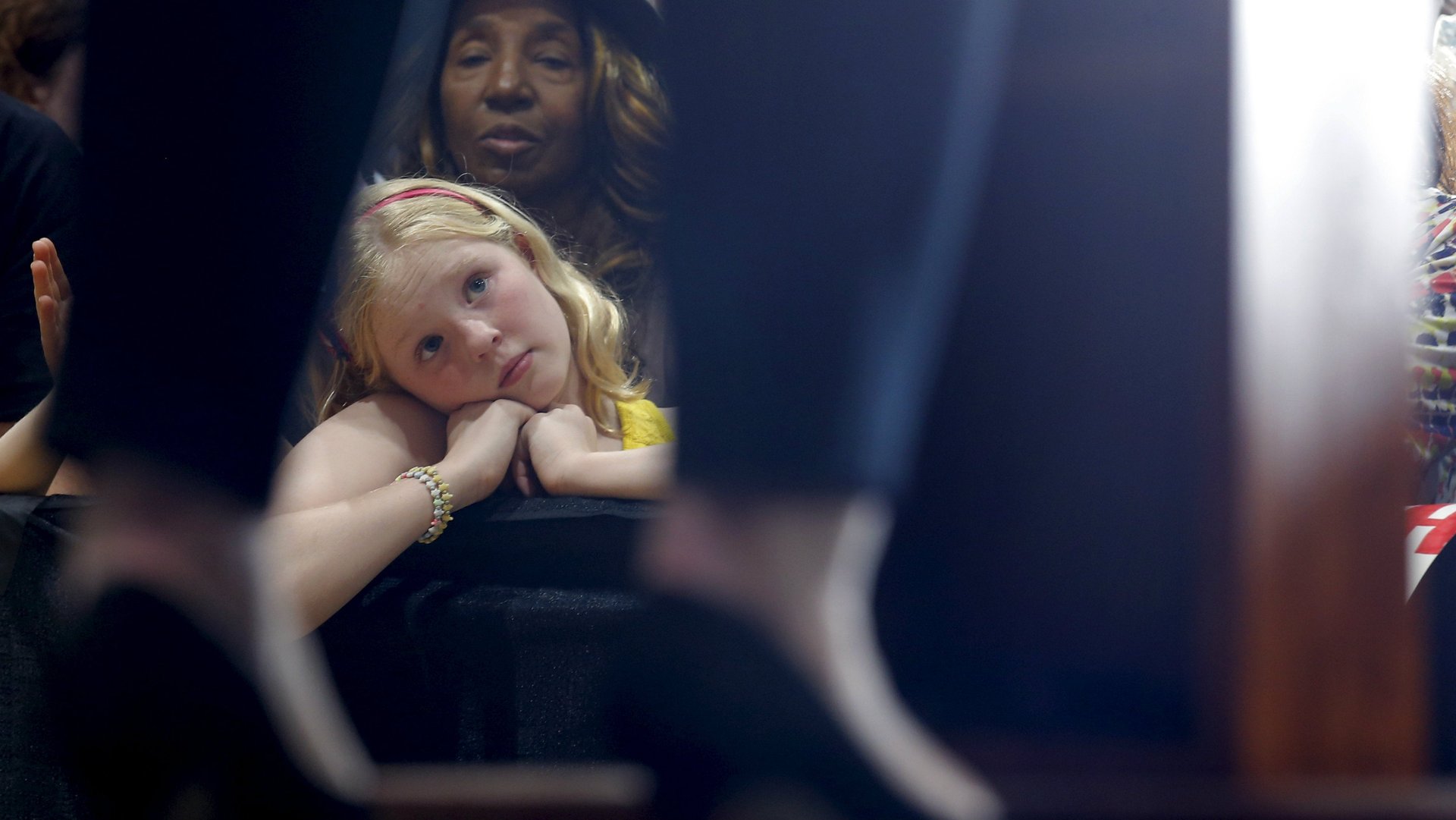This election reveals our limited ability to imagine a reality different than our own
After the shocking results of the US presidential election, much of the country is faced with feelings of dread and confusion, anger and disenchantment. I was stunned and despondent and then quickly rushed through the five stages of grief, determined to move forward. Now, I am struck by an important lesson that I think too many of us fail to grasp: Trump’s victory was a shock to the media and pollsters, the liberal elites and coast-dwellers because we fail to imagine a reality different than our own.


After the shocking results of the US presidential election, much of the country is faced with feelings of dread and confusion, anger and disenchantment. I was stunned and despondent and then quickly rushed through the five stages of grief, determined to move forward. Now, I am struck by an important lesson that I think too many of us fail to grasp: Trump’s victory was a shock to the media and pollsters, the liberal elites and coast-dwellers because we fail to imagine a reality different than our own.
We said that we wanted to understand who the Trump supporters really were but we only ventured to understand them on our own narrow terms. We decided they were uninformed; they were poor, whites; they were racist. The takeaway: they’re nothing like us. This was evidenced by Hillary Clinton’s misstep in referring to half of Trump supporters as “deplorables.” We failed to understand how a woman or a black voter could value anything other than what we value.
Those white Trump supporters, who are making their voices ever louder, fail to understand the experience of being a person of color, a person who identifies as LGBT, a Jew or a Muslim. They cannot identify with a life filled with the pain and fear that an identity other than their own brings.
Our empathy has limits, and rightly so. Our survival instincts necessitate that we know our own needs in order to thrive. But our lack of imagination, our inability to conjure our creative spirit to think outside of ourselves and our wants and needs will be our ultimate downfall as Americans.
I’m not talking about an empathy that is like a shortcut to a moral high-ground, as David Brooks put it in a 2011 piece on the empathy craze. I’m referring to the need to understand that there are people who are different than us and to accept that. To try to imagine, at an elemental level, that what you find so foreign in others’ thinking, they feel about you.
We need to use that understanding to have difficult conversations. Isn’t that the basis of our democracy? A 240-year dialogue doesn’t work if we only have it with ourselves. I recently asked two Americans in their young twenties why they supported Trump and their answer was something I think a lot of people have missed: They thought Trump was an asshole, but he was a less scary option to them than Clinton—Trump says bad things but Clinton does bad things.
The devastation that Democrats feel today is how many Republicans felt after Obama was elected in 2008. As the tenor of the election heightened, I saw more people threaten to unfriend those who support Trump on Facebook. That kind of action has led us to the echo chamber we experience, ensuring that our confirmation bias remains unchallenged. Just look at the Wall Street Journal’s interactive showing the how liberal and conservative Facebook feeds look next to each other. Emma Pierson revealed this same thing for Quartz in her analysis of Twitter after Ferguson.
Imagination is not just about fantasy and escape, it’s a way to bridge the space between humans, the distance that fluctuates from infinitesimal degrees to massive gulfs. This physical distance makes empathy harder and research has shown that though we are able to imagine how others think and feel, we reserve it for people we care about rather than those of other political leanings. Children know this.
If we had used our imaginations in this election, at the very least its results might not have been such a shock. If we had used our imaginations, we might have had conversations with the other side of the aisle and listened rather than escalate into anger. If we had used our imaginations, we would know that no one identity group or political party holds the exclusive right to the American dream.